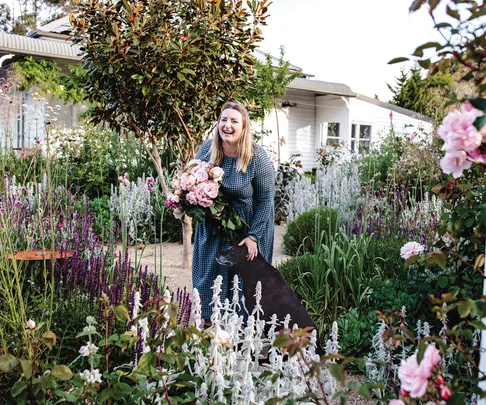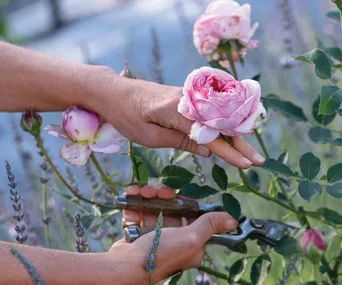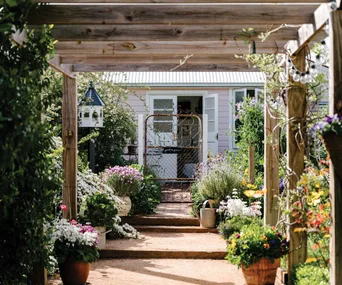This story is a love letter to to Little Oak, a Tasmanian property situated near Cygnet – the traditional home of the melukerdee people – that shifted the direction of one couple’s life.
Eleven years ago, Pip Steele-Wareham and Hugo Lazo left their harried Sydney existence and demanding careers, and became the new owners of a forgotten 1860s cottage on 12 hectares of what was once a fruit orchard halfway up Silver Hill.
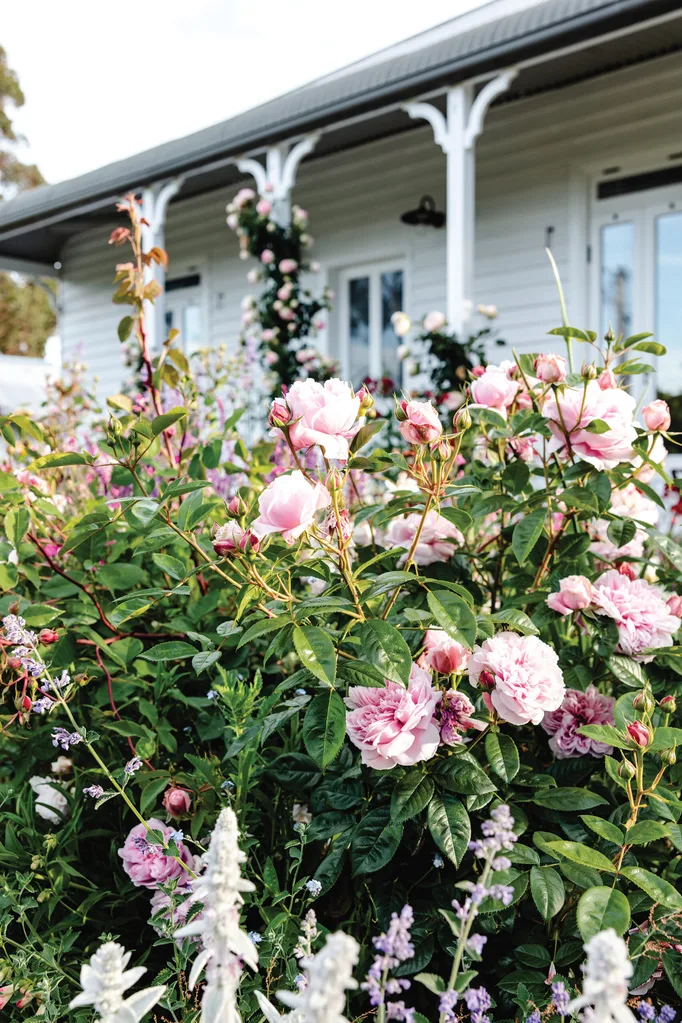
Pretty, plump roses take centre stage at Little Oak.
In 2011, lacking funds and know-how but bursting with determination, the couple, both 42, threw themselves into transforming the bare land at Little Oak – named in honour of Pip’s family farm in New Zealand. Perched above a sweeping valley, but not quite at the top of the hill, frosts were minimal and the winds manageable. The soil, however, was punishing.
“Everyone thinks when you move to Tassie, you will have this lovely, rich, fertile soil – and that’s true in some areas, but Little Oak was built on old rock,” says Pip. “It was really hydrophobic, so if you didn’t condition the soil before you planted anything, it wouldn’t survive. The water wouldn’t even penetrate the ground.”
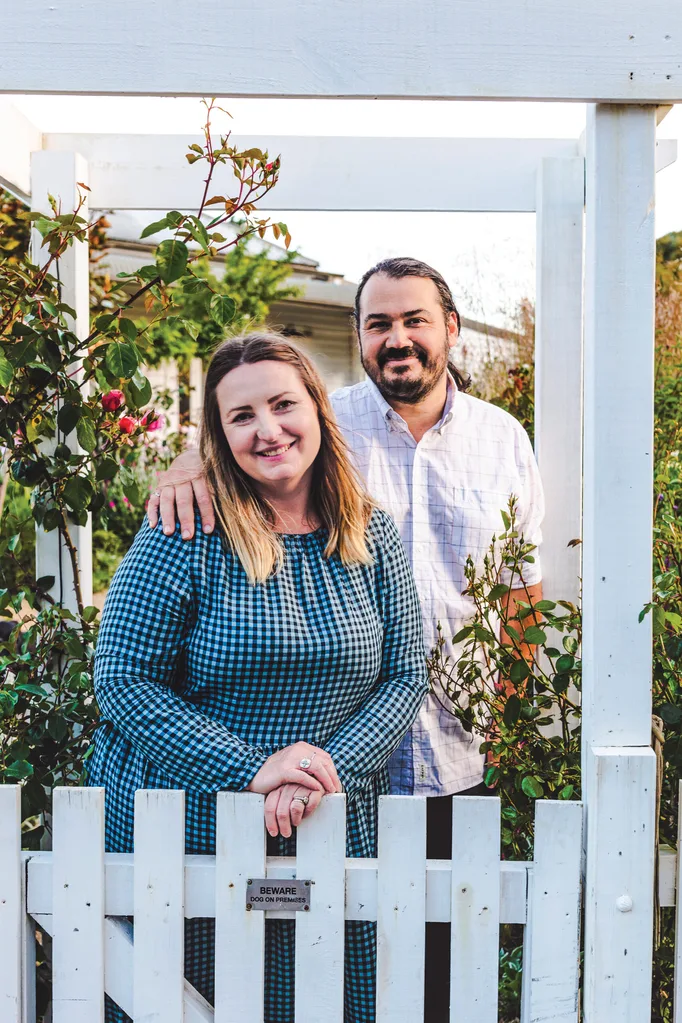
Pip and Hugo persisted in shaping their ideal garden, despite many hurdles.
It was a time of steep learning. “We bit off way more than we could chew,” Pip admits. “We put in a huge garden, spent money, and then realised we didn’t have proper fences to keep wallabies out, so they ate everything! It’s all those things you don’t know when you come directly from living in the Sydney CBD.”
She describes those early years as “soul-destroying, frustrating and expensive” but relishes the knowledge gleaned, both botanical and biographical. “I have no doubt that Little Oak spoke to who I really was, and it returned me to that,” says Pip, who left her job in events management in Hobart after three years of working on Little Oak in her downtime.
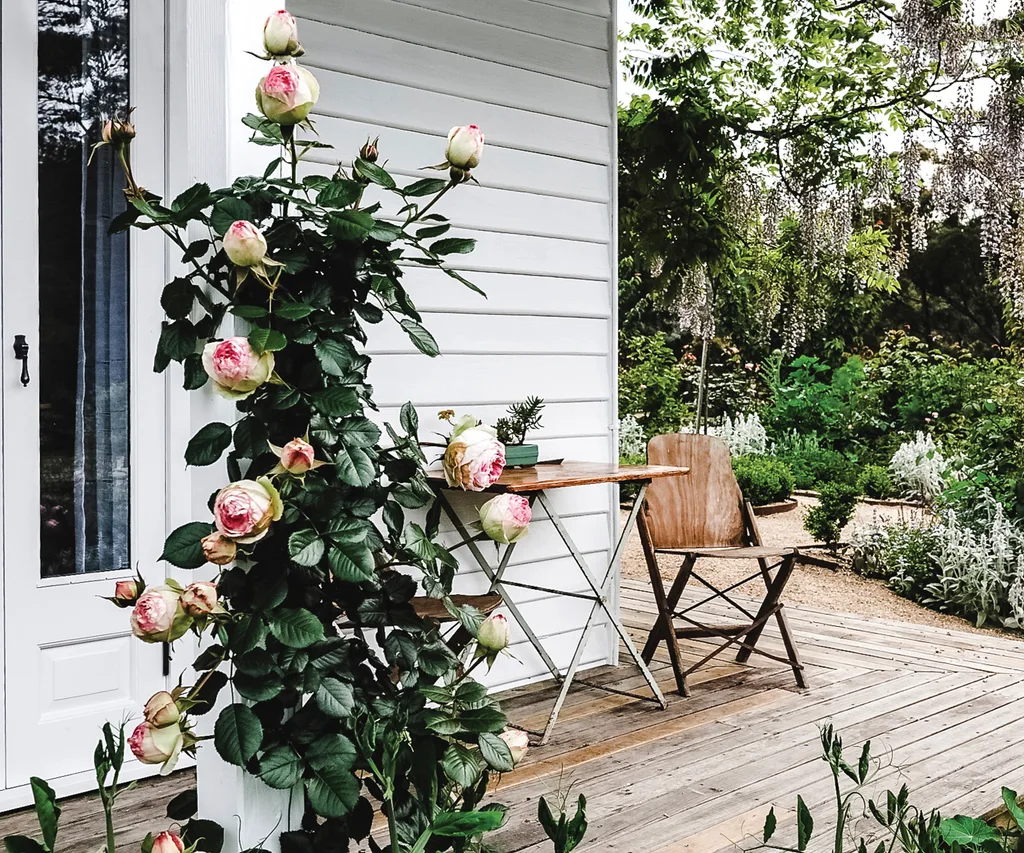
Exquisite Pierre de Ronsard climbing roses engulf the verandah posts at the front of the north-facing cottage.
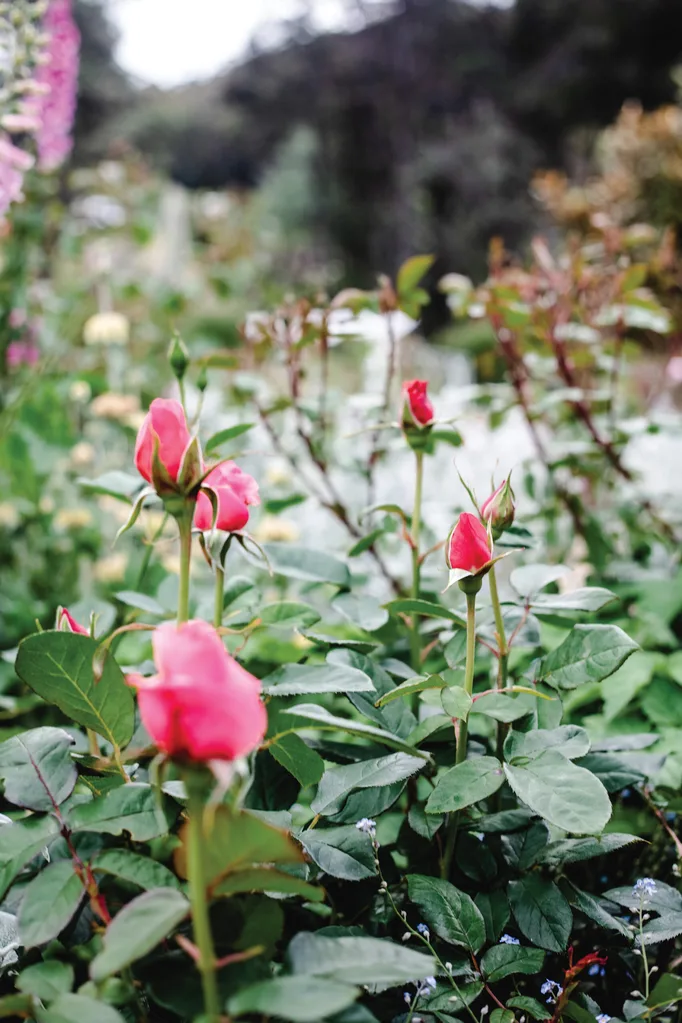
Pretty rosebuds.
The clear Tassie air gave her the headspace to reassess her direction and tune into something she’d always loved: digging in the soil. Pip enrolled in a horticulture course at the Royal Tasmanian Botanical Gardens and worked in nurseries, where she soaked up the knowledge shared by others.
“I was a kid in a lolly shop – most of my pay went back into plants,” she says.
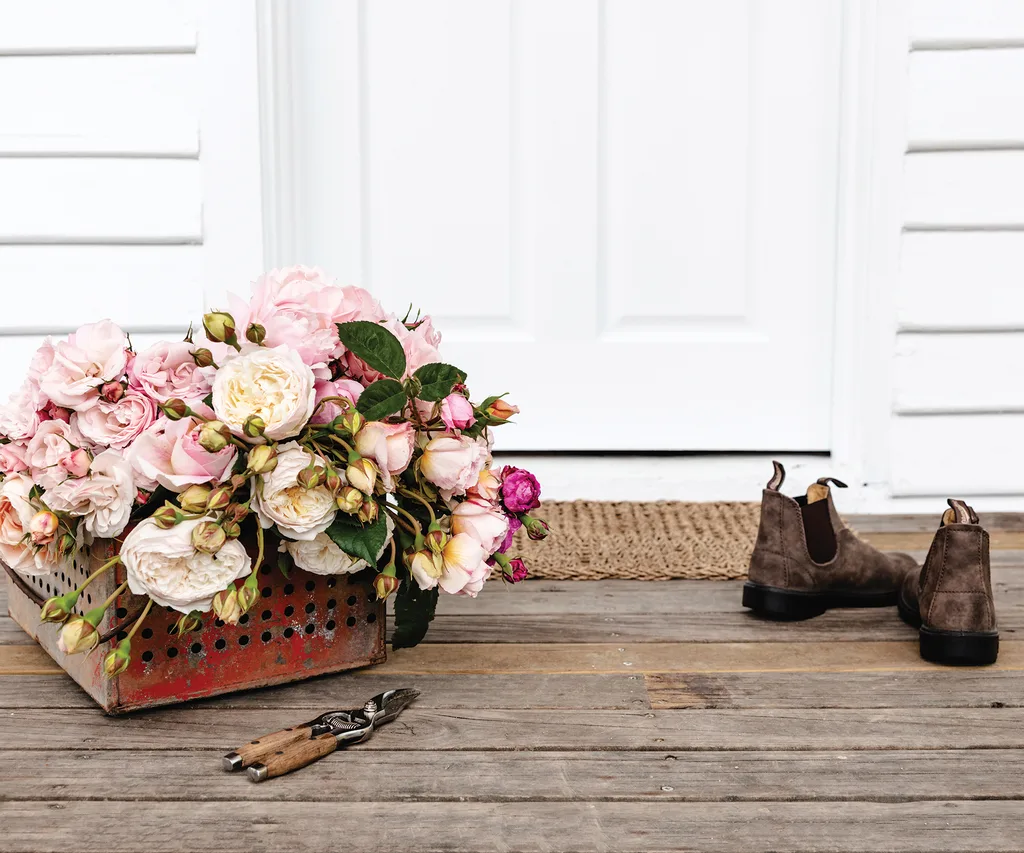
A fresh bouquet for display indoors.
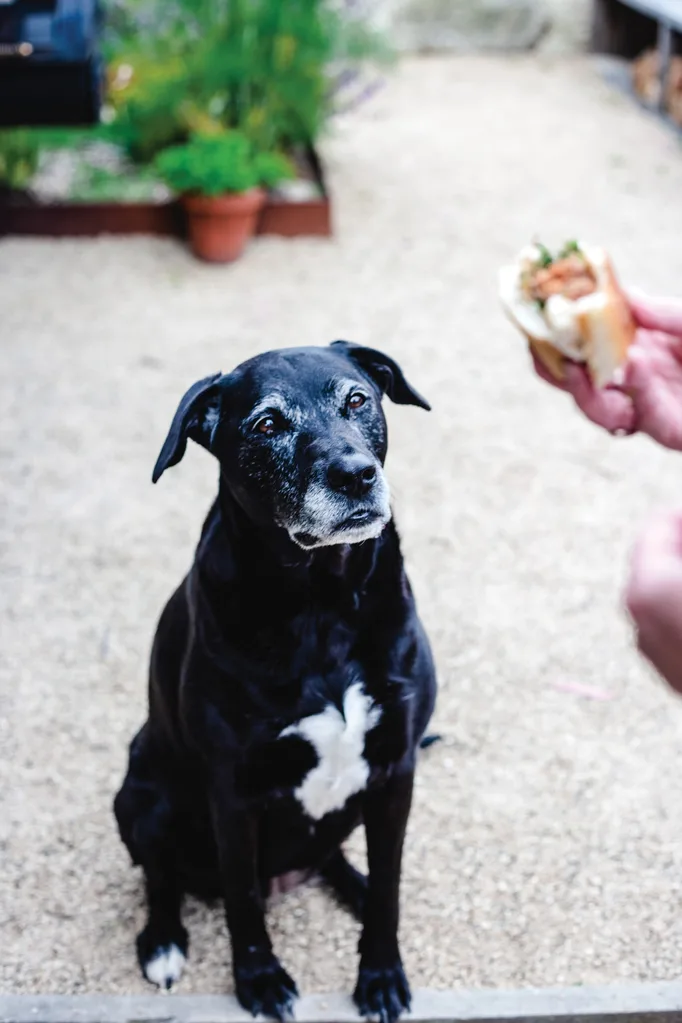
Loyal labrador, Wednesday.
With a renewed focus, Pip and Hugo pulled out the garden and started afresh.
“We made huge lasagne beds of organic matter – layers and layers – and we had composting pathways of mulch and woodchip,” Pip explains. They reinstated the fruit trees and fine-tuned the vegetable garden with eight beds and a polytunnel. “We planted over 40 fruit and ornamental trees in the end, including a million different apple varieties,” she adds.
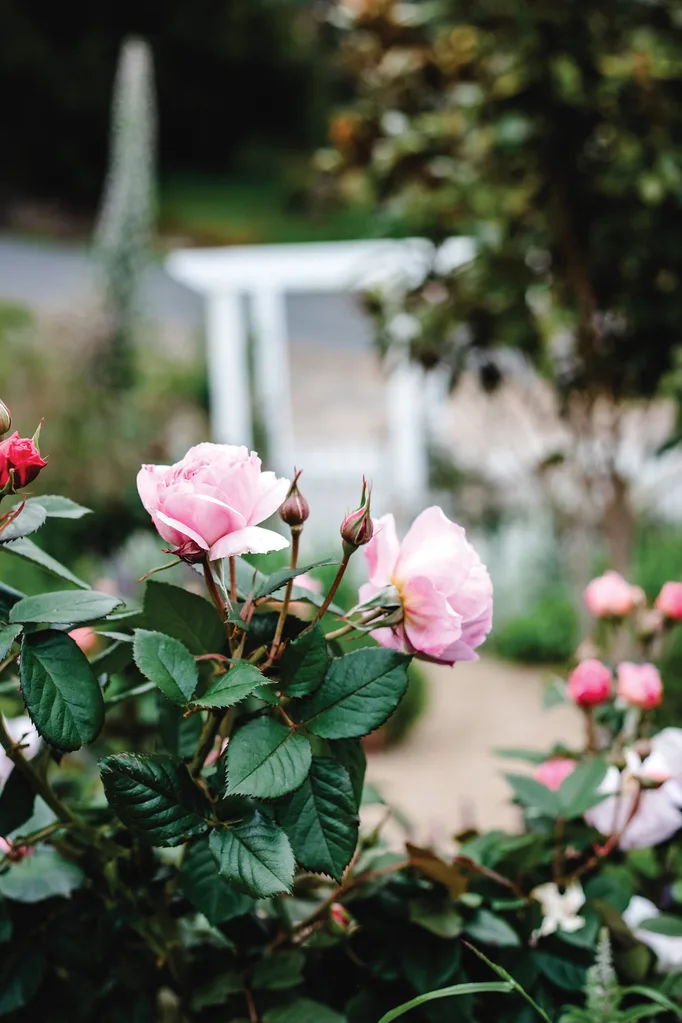
Fragrant favourites.
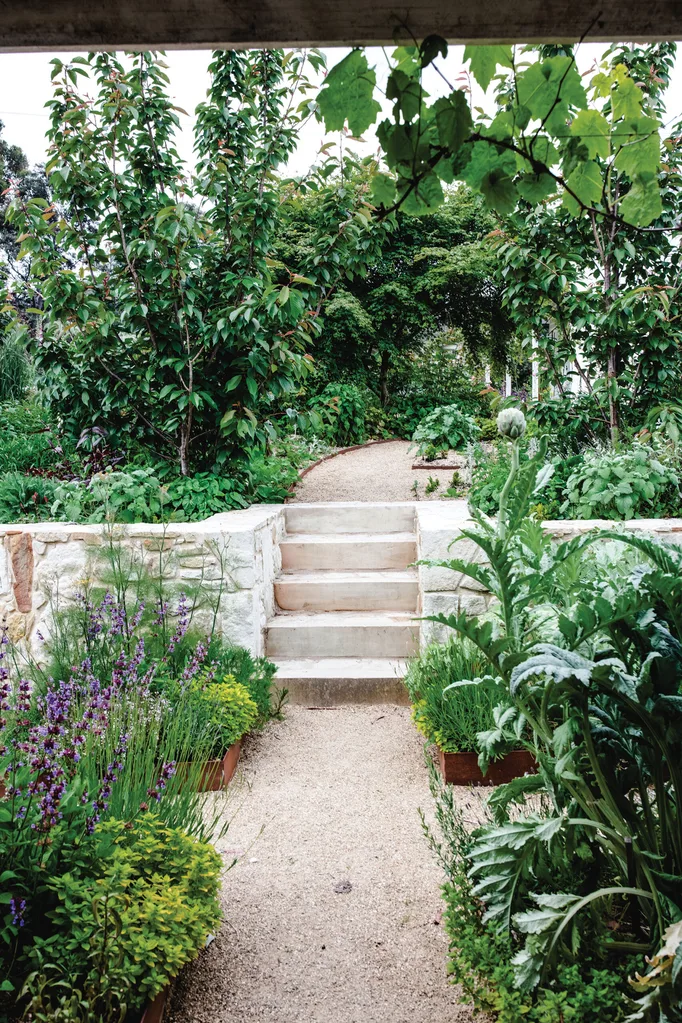
Gravel pathways weave between metal-lined garden beds.
Pip devised a layout with Tassie Gold gravel pathways weaving around the home and beds elegantly edged in metal. “I had these circlets dotted around the garden, and the circlets either had an ornamental tree in the middle, or they were open and created a space to sit in,” she explains.
Grasses such as Karl Foerster and Stipa gigantea towered over pretty perennial clouds of salvia, sedum and Achillea ‘Terracotta’, but [the roses](https://htl.dev.digital.aremedia.com.au/how-to-grow-roses-9245|target=”_blank”) were Pip’s pride and joy.
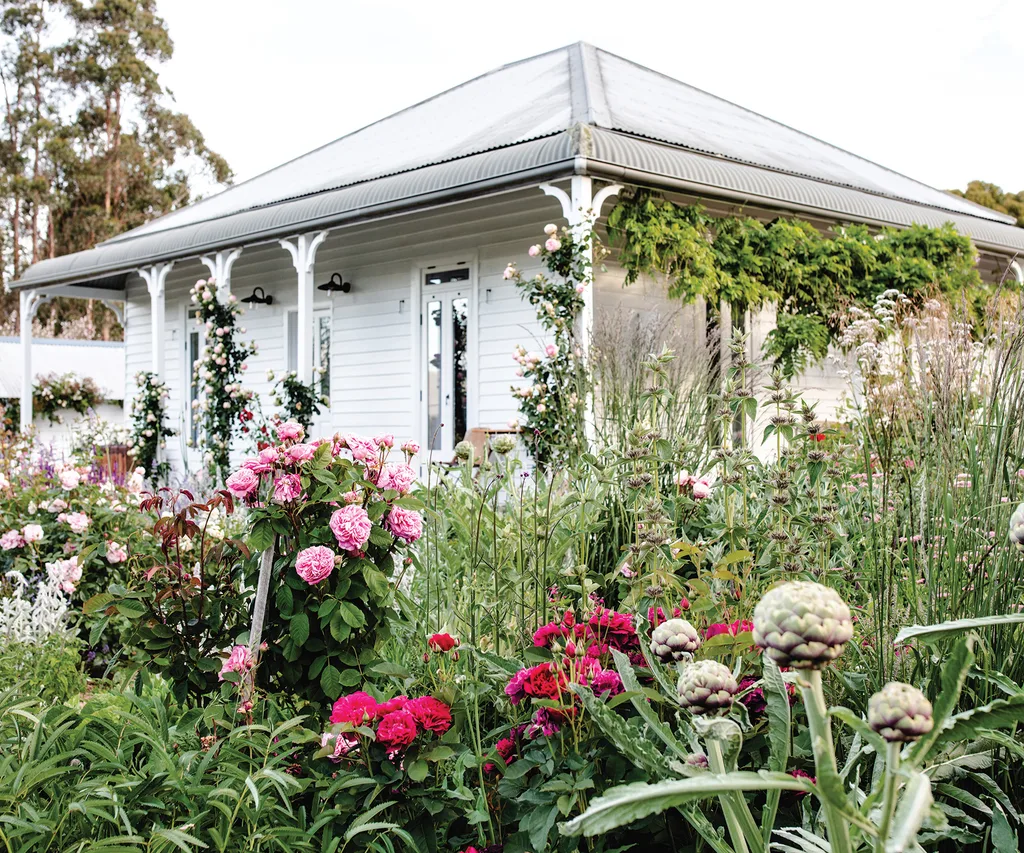
While planting, Pip strove for balance and symmetry, without losing a sense of wild whimsy. “It was quite an assault on the senses when you walked through the front gate – just flowers, flowers, flowers! It was gorgeous, but your eye needs relief from the busyness,” she says.
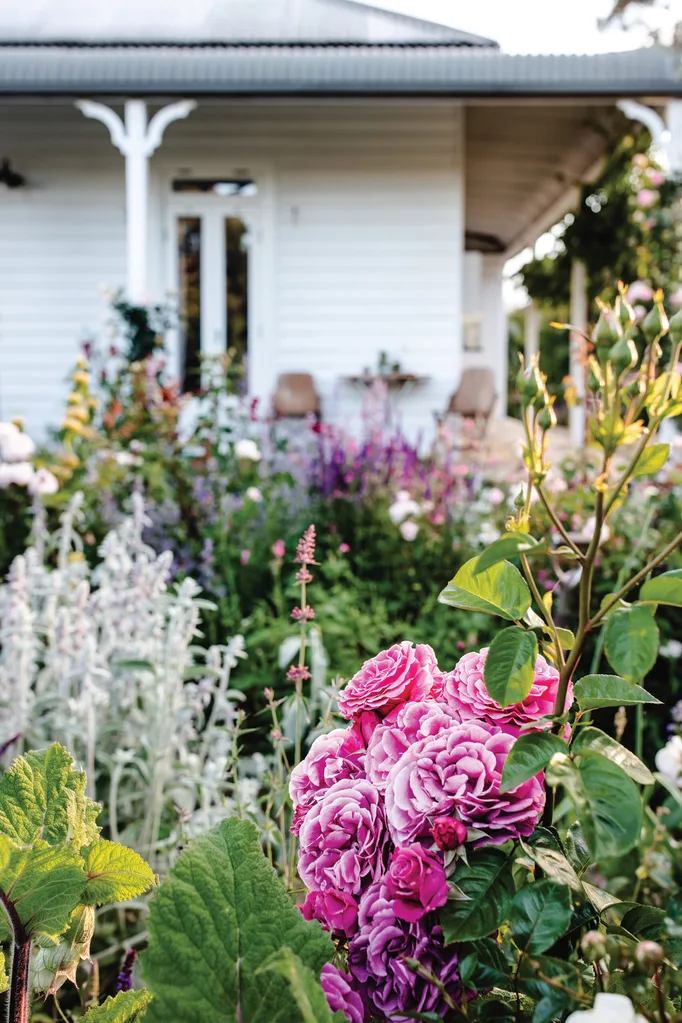
Breathtaking Mornington roses.
“I remember seeing a huge rose for the first time in my grandmother’s garden when I was little – it was as big as my face. That started this lifelong obsession,” she says, adding that she hails from a long line of rose devotees. More than 150 rose plants have taken root at Little Oak, mainly David Austins and old-fashioned varieties.
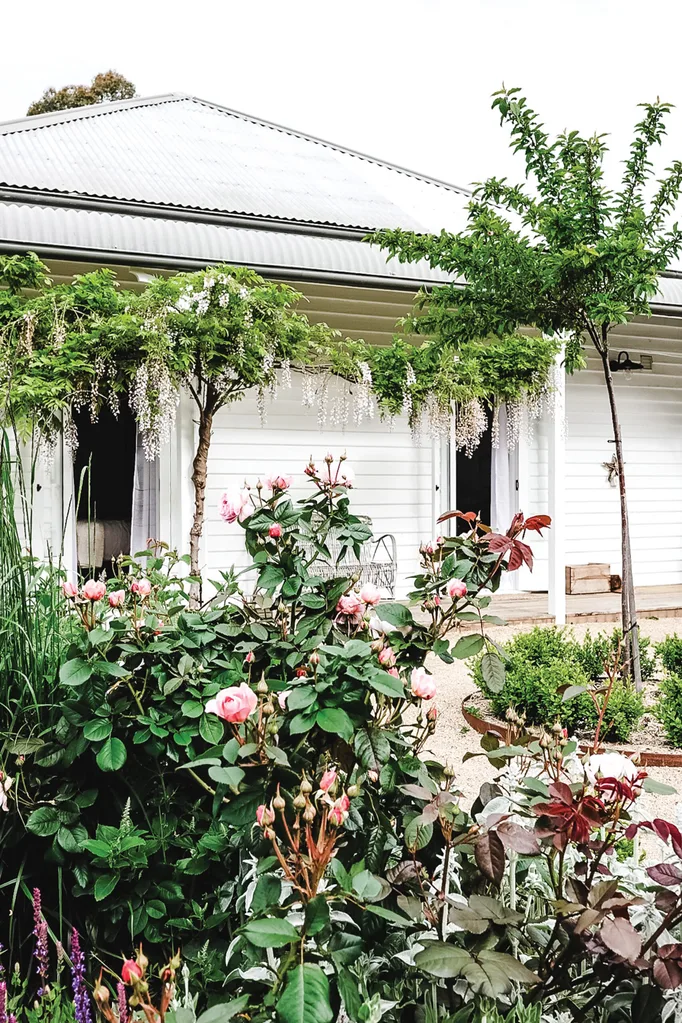
Chinese wisteria frames the French doors on the easterly aspect.
Meanwhile, tapping into his Chilean heritage and love of a good barbecue, Hugo built an outdoor kitchen and installed a pizza oven and South American grill. It proved the perfect spot for leisurely alfresco entertaining.
The industrious couple also bestowed love and elbow grease upon the cottage, painting throughout, adding French doors, opening up the kitchen and dining room layout, and fitting a new bathroom. “It was 10 years’ worth of work, most of which we did in the last two!” Pip says.
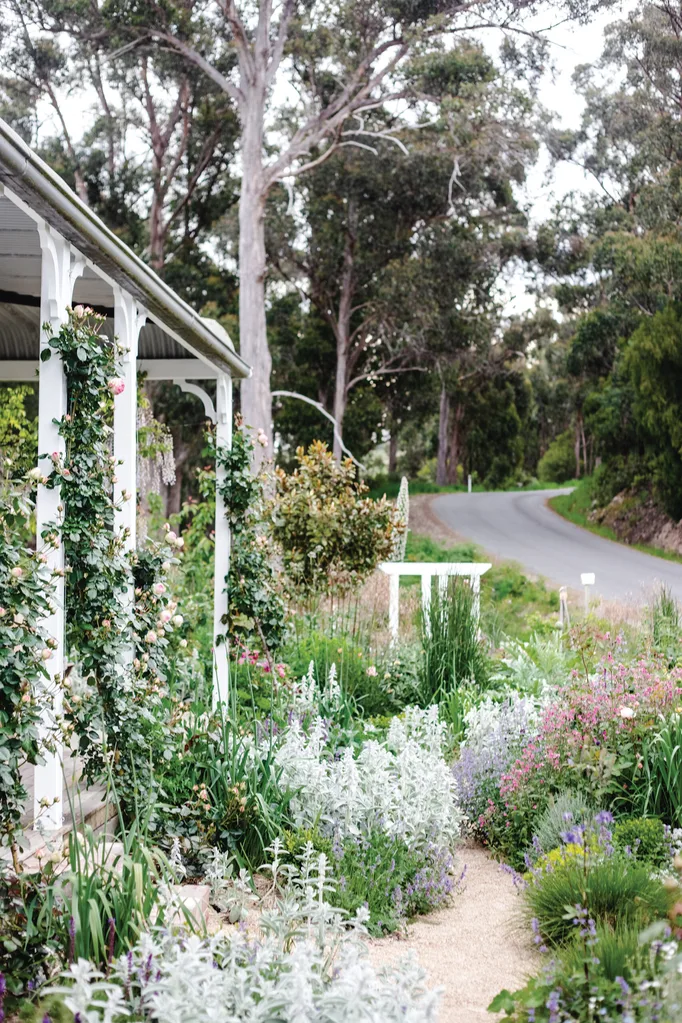
“I wanted the cottage to be enveloped in the garden, and for the garden to provide privacy from the road,” Pip says.
She adds that completing the transformation of Little Oak softened the blow when they decided it was time to move on: “The only way I would be good with the move was if I could walk away knowing we had done her justice and we did what we set out to do 10 years prior.”
Pip, Hugo and their daughter Ines, born in 2019, moved into a 160-year-old farmhouse in Central Victoria at the end of 2021 to be closer to family.
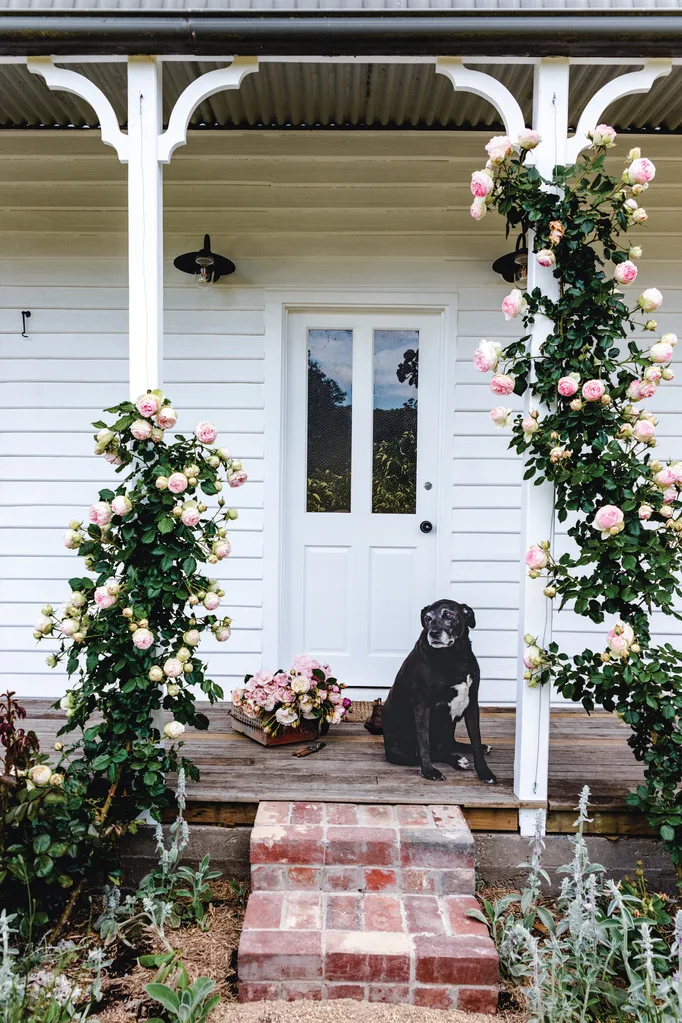
Wednesday waits by the verandah steps, which were built using old bricks found on the property.
Prior to leaving Little Oak, Pip hand-illustrated a map of the landscaping and its patchwork of plantings. She gifted the new owners a copy for their reference, but kept the original as a beautiful reminder of everything that she and Hugo achieved at their beloved Little Oak.
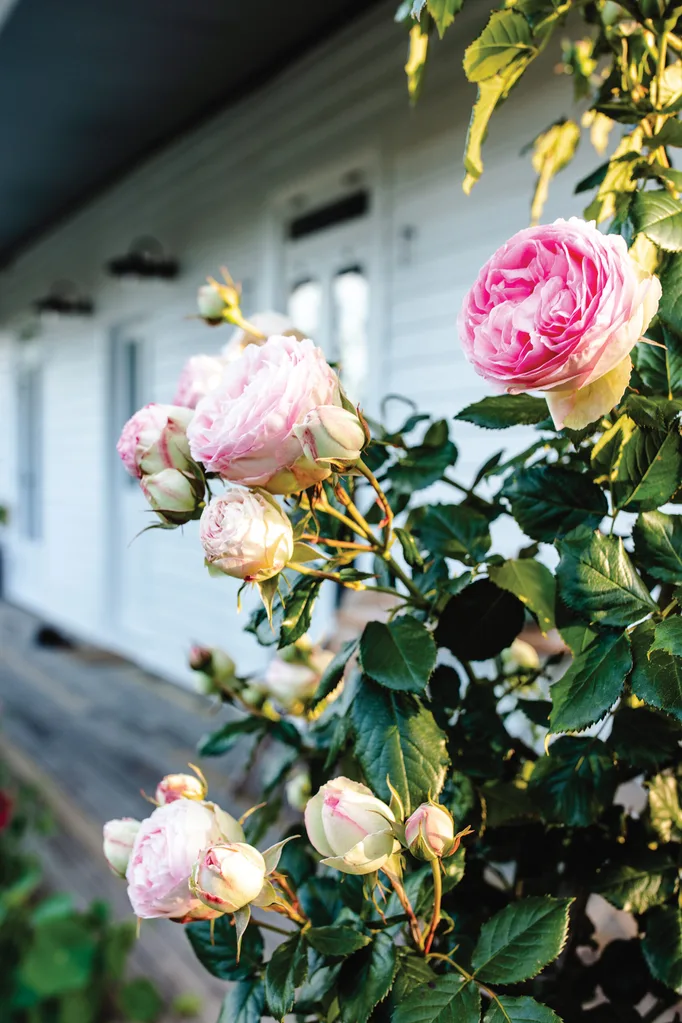
The scent of roses drifts through the French doors.
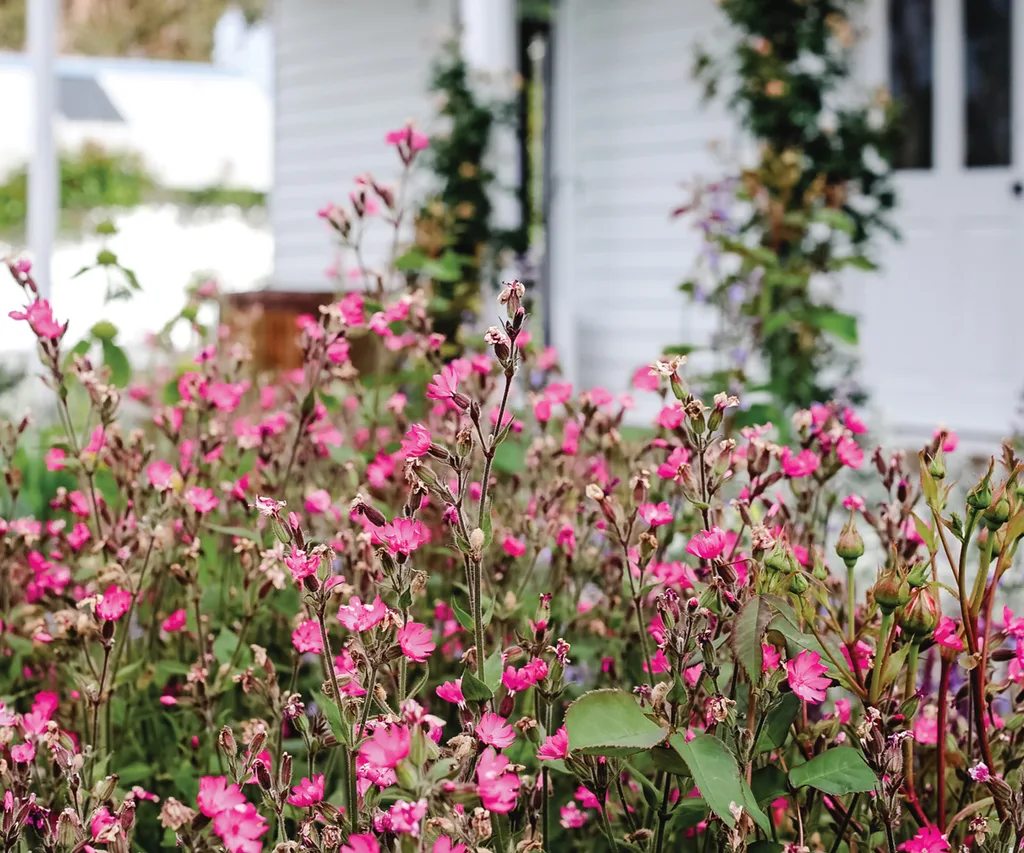
Silene, a British meadow flower, adds a sea of pink.
Follow the family’s new gardening adventures on Instagram @the_garden_at_moorfield

